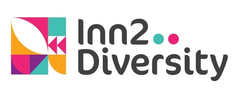The purpose of the profiles is to be a flexible tool for the director of the Institute/School to identify the appropriate competences and indicators relevant for carrying out a mentoring programme towards teachers returning to work after a long absence, 1st jobseekers or other teachers facing difficulties in retaining their job place.
Read the description of the each profile below and take the assessment for the profile you find yourself in.
Read the description of the each profile below and take the assessment for the profile you find yourself in.
Profiling tool (choose language):
Detailed description of role and skills, for each profile:
|
Role description:
The mentoring coordinator is an individual who plays the role of management and supervision of the mentoring process, in order to assure that it goes as planned and that goals are achieved. The responsibilities of the mentoring coordinator are to recruit, develop and retain mentors and mentees, match appropriate mentees to mentors (“pairing off”), help mentors define the mentoring purpose and supervise the whole process, giving organizational support for development and empowerment. Skills description:
1. Communication. As mentoring coordinator, individuals should have knowledge about all this: be able to exchange ideas, feelings or experiences, both in verbal and non-verbal; is able to communicate clearly and assertively in order to have an efficient communication, where his message is correctly understood. 2. Resilience. Mentoring coordinator must have a positive conduct and cognitive flexibility. Mentoring coordinator is aware of own potentialities and resources and tries to actively overcome a traumatic situation, being persistent, flexible and motivated, with high levels of self-esteem and self-assurance. Resilience is associated with Emotion Management, Empathy, Optimism, Causal Analysis, Self-Efficiency and Proximity to People.
3. Group management. Mentoring coordinator must be able to interact with a group of mentors and mentees and use appropriate group dynamics, which allow observing behaviours, attitudes and knowledge, being a powerful tool to achieve goals. Mentoring Coordinator should be aware of training methodologies.
4. Conflict management. Mentoring Coordinator understands that conflict might occur in different levels (intrapersonal, interpersonal, intragroup, intra-organisational, intergroup and inter-organisational) and has different sources/causes (work relationship, lack of resources, no clarification about the roles), recognizing in which situations conflict is a good thing (for example, being a factor of change and of stimulation to creativity and innovation). Mentoring Coordinator knows different strategies to resolve conflicts - from avoidance, accommodation and domination, to commitment and cooperation. Mentoring Coordinator should listen to all interventions and pay attention not only to the content of the message, but also to the feelings and emotions implicated in it.
5. Mentoring process management. Mentoring coordinator must have clear knowledge about the mentoring definition and process, including different models, techniques and strategies. Mentoring Coordinator's mission aims at helping mentors to build their mentees’ confidence, giving encouragement and positively reinforcing progress. Mentoring Coordinator must boost mentors to take own decisions. Also, Mentoring Coordinator must give adequate support for a mentoring scheme, assuring confidentiality and providing authentic advice to mentor. Mentoring Coordinator must have clear knowledge on the scope and limitations of the mentor's role, helping establish clear boundaries and limits in the mentor-mentee relationship. For delivering a mentoring project, a Mentoring Coordinator should be recognized as a leader and be able to interact and cooperate with various organisations/ partners.
6. Supervision. The mentor coordinator must adopt a supervisory role and define concrete goals, provide knowledge and access to alternative resources, keep mentors and mentees interested and motivated (emotional support and monitoring of expectations) and resolve any issues. The mentoring coordinator must be able to mobilize internal skills to address the emotional, practical issues and the needs of mentors. The mentor’s coordinator should transmit learning and knowledge, share skills, techniques and experiences, making everything suitable for the specific reality of each mentoring process. The mentor’s coordinator respects diverse cultural backgrounds and has an ethical responsibility not to exclude people different from himself.
7. Lifelong Learning and Self-Development. To be competent, the mentor’s coordinator must activate a continuous development of skills and engage in advanced training to develop more and more specific ones. Therefore, the mentor’s coordinator should be self-reflective and able to evaluate his/her own practices and methods, be available and open to reformulate the supervision, tutoring of processes and dynamics. The mentor’s coordinator must recognize when and in what situations he/she should seek further support, approval or training.
|
Role description:
Mentors are responsible for engaging in the mentoring relationship to support a mentee (the person receiving support), for preparing, conducting, and evaluating the mentoring sessions according to the scope and purpose of the programme, and for sharing with mentoring coordinator all steps ran in mentoring process. A mentor should be experienced personnel who has organisational knowledge, who perceives mentoring as a means of job efficacy and who is willing to commit time to others (Gonçalves & Farcas, 2016). Skills description:
1. Communication. As Mentors, individuals should be able to exchange ideas, feelings or experiences, both in verbal and non-verbal; be able to communicate clearly and assertively in order for the message to be correctly understood; be able to active listen and show empathy. 2. Resilience. Mentor is aware of own potentialities and resources and tries to actively overcome a traumatic situation, being persistent, flexible and motivated, with high levels of self-esteem and self-assurance. Resilience is associated with Emotion Management, Empathy, Optimism, Causal Analysis, Self-Efficiency and Proximity to People.
3. Group management. Mentor must be able to interact with a group of mentees (whenever is necessary) and use appropriate group dynamics, which allow observing behaviours, attitudes and knowledge, being a powerful tool to achieve goals.
4. Conflict management. Mentor should know different strategies to resolve conflicts - from avoidance, accommodation and domination, to commitment and cooperation. Mentor must diagnose the origin of conflict as the first step to its resolution and apply a factual approach. Mentor should listen to the other and pay attention not only to the content of the message, but also to the feelings and emotions implicated in it: actively listening is one of the most suitable ways in the negotiation of conflicts and always implicates empathy and a comprehension of the other point of view, pondering every possible solution. Mentor should also develop a good stress management.
5. Mentoring process management. Mentor's mission aims at helping mentees to build their confidence, giving encouragement and positively reinforcing progress. Mentor must boost mentees to take own decisions. As so, mentor must be emotionally "ready" to support another person and be able to form an effective bond with the mentee, assuring confidentiality and providing authentic advice and nurturing.
6. Diversity management and inclusion. The mentor must be aware of the heterogeneity and complexity present in the school and, in addition, must have basic training both at a pedagogical and educational level. The mentor must be able to guide the mentee in the search for the most effective strategies and methodologies to implement the process of inclusion of each member of the class group, as well as supporting him in personal training. He himself must also know the legislation in force and the necessary documentation to accompany students on their course of study and lead them to academic success.
7. Collaboration with colleagues, parents and social services. The mentor must act on the context in order to facilitate the construction of the network and the synergies necessary for intervention in individual situations in order to find the most appropriate answers and to clarify the tasks and responsibilities of each one. The mentor must pay particular attention to the expansion of the collaboration network and the updating and constant passing of information, in order to respond adequately to complex, difficult and particularly fragile situations.
8. Life-long learning and self-development. To be competent, the mentor must activate a continuous development of skills and engage in advanced training to develop more and more specific ones. Therefore, the mentor should be self-reflective and able to evaluate his/her own practices and methods, be available and open to reformulate the supervision, tutoring of processes and dynamics. The mentor must recognize when and in what situations he/she should seek further support, approval or training. The mentor should also submit progress and achievement reports to the coordination team, in which he/she is responsible for decision making and tasks.
|
Role description:
The mentee is the one who learns and who is supported and guided in his path towards the acquisition of skills, knowledge, skills, and attitudes essential for the role of teacher and, even more so, to be an effective teacher. The examination of the needs and objectives of the mentees can be of guidance in specifying the criteria for selecting mentors, at least in terms of skills, knowledge, and experience that future mentors must possess. Skills description:
1. Communication. As effective teachers, individuals should have knowledge about all this: be able to exchange ideas, feelings or experiences, both verbal and non-verbal. 2. Resilience. The mentee must be resilient when faces complex and difficult situations, when faces students who are particularly reluctant to follow the rules, when works with colleagues who have very different points of view from their own or with families who present themselves as "walls" particularly difficult to overcome and to collaborate with for the success of their child's schooling.
3. Conflict management in the class. Working in a class where conflicts are repeated daily, also and often resulting in verbal and physical aggression is not easy. For this reason the effective teacher/mentee must be able to recognize the signs of discomfort and ask for help both from a professional point of view and from a psychological point of view, to bring tensions out of himself.
4. Diversity management and inclusion. The mentee/effective teacher must seek, also with the support of the mentor, the most effective strategies and methodologies to implement the process of inclusion of each member of the class group. He must also know the legislation in force and the necessary documentation to accompany students in their studies and lead them to school success.
5. Collaboration with colleagues, parents and social services. The effective teacher must be aware that in order to act on the context it is necessary to foster the construction of the network and the synergies necessary for the intervention in individual situations in order to find the most appropriate answers and to clarify the tasks and responsibilities of each one.
6. Lifelong learning and self-development. To be competent, the mentee/effective teacher must activate a continuous development of skills and engage in advanced training to develop specialized skills. Self-reflection and self-analysis of his training needs should lead him to evaluate its practices and methods and to be more available and open to discussion and professional updating. The effective teacher must ask where and when and in what situations he/she can find support and training offers, even of a specialist type.
|




